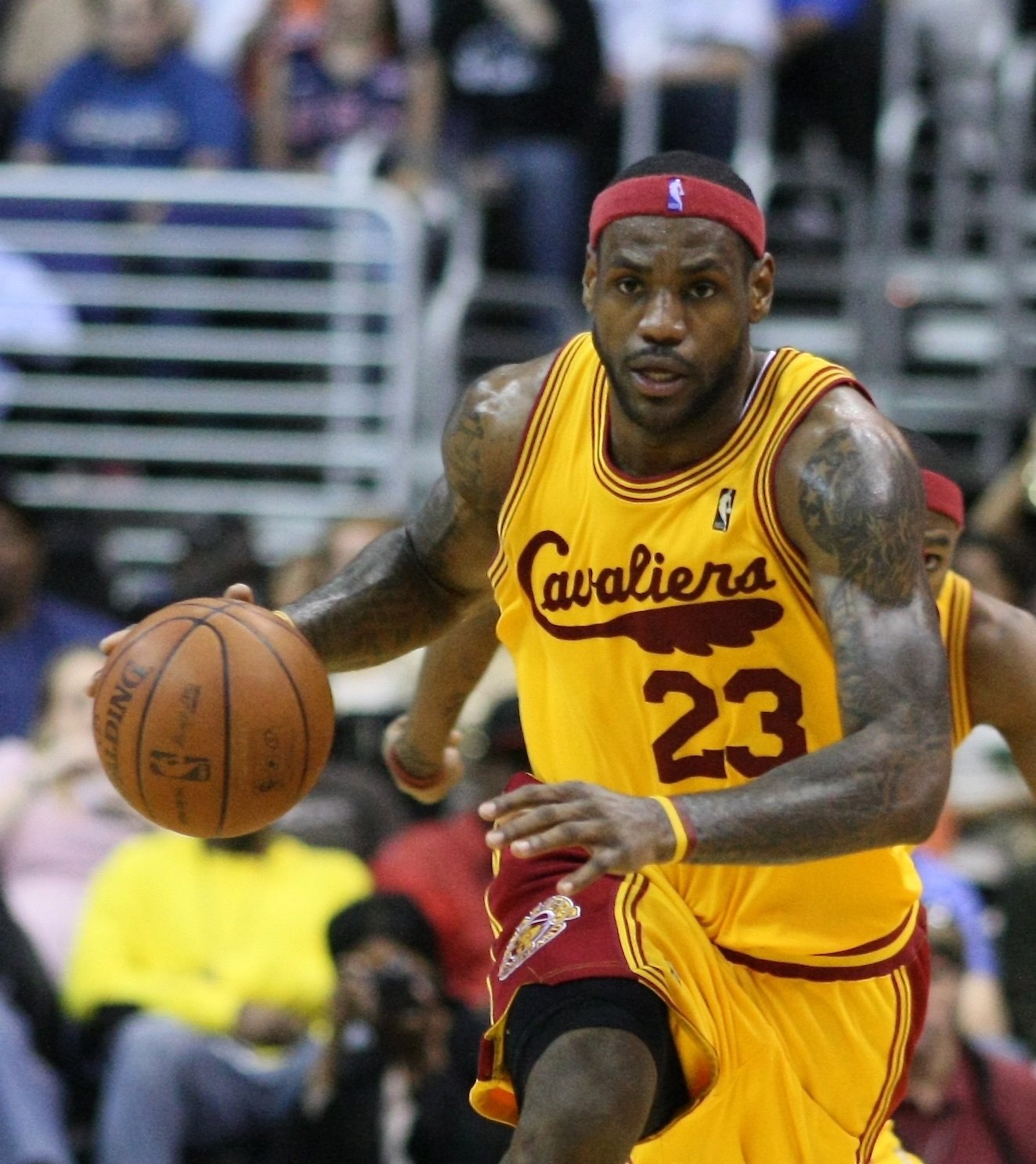
In the annals of professional sports, few careers command the same level of sustained excellence, strategic evolution, and transformative impact as that of LeBron James. From his entry into the NBA as a highly anticipated phenom to his current status as an undisputed icon, James has consistently redefined the parameters of individual achievement and team leadership. His journey is not merely a collection of statistics but a rich tapestry of defining moments, controversial choices, and unwavering commitment to success.
This article delves deep into the foundational chapters of James’ illustrious career, meticulously examining the periods that forged his legend. We explore his formative years with the Cleveland Cavaliers, where he first showcased a talent rarely seen, then navigate the seismic shift of ‘The Decision’ and his subsequent, often tumultuous, yet ultimately triumphant era with the Miami Heat. Each phase offers critical insights into the strategic foresight, athletic prowess, and profound influence James wields both on and off the court.
His career trajectory serves as a masterclass in adapting to pressure, cultivating talent, and orchestrating winning environments. Through an in-depth analysis of these pivotal periods, we aim to illuminate the factors that have allowed LeBron James to not just compete, but dominate across multiple franchises, cementing a legacy that continues to inspire and challenge the conventional narrative of basketball greatness. Join us as we chart the initial ascent of a player who has consistently transcended the game.
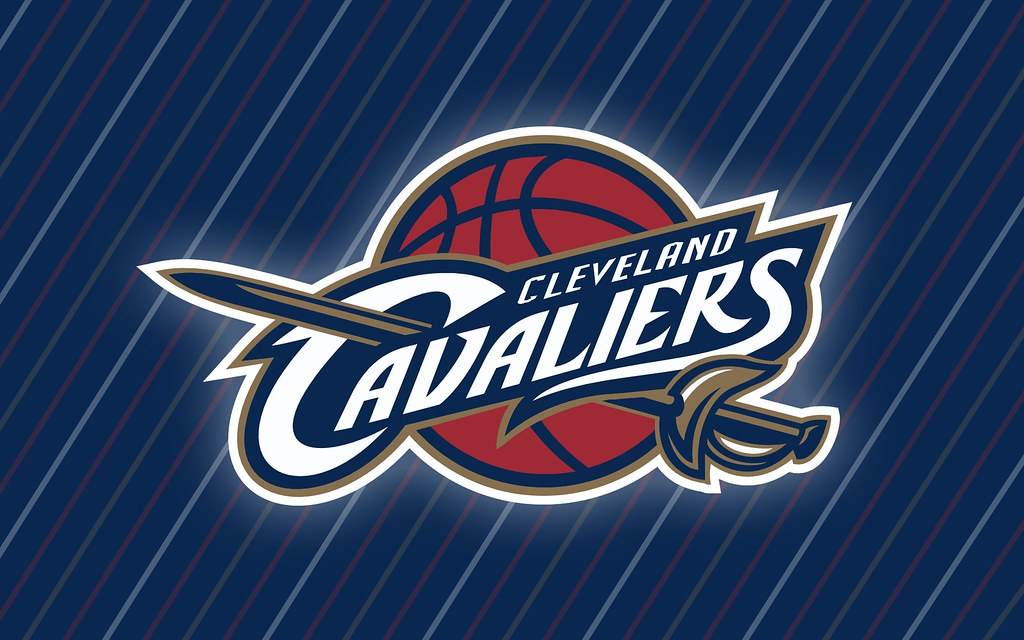
1. **Rookie Sensation: The Cleveland Genesis (2003-2004)**LeBron James’ professional basketball journey began with unprecedented anticipation when he was selected as the first overall pick by his hometown team, the Cleveland Cavaliers, in the 2003 NBA draft. Opting for jersey number 23 in homage to Michael Jordan, James quickly demonstrated why he was heralded as a generational talent. His debut performance against the Sacramento Kings saw him score 25 points in a 106–92 loss, establishing an NBA record for the most points scored by a prep-to-pro player in their first game.
The 2003–04 season marked a historic entry for James into the league. He averaged more than 20 points, five rebounds, and five assists per game as a rookie, a feat previously achieved only by Oscar Robertson and Michael Jordan. This exceptional all-around production underscored his immediate impact and his rare ability to influence every facet of the game from the outset.
At the conclusion of his inaugural season, James was rightfully honored as the first Cavalier to receive the NBA Rookie of the Year Award. Despite his individual brilliance, Cleveland finished the season 35–47, an 18-game improvement over the previous year, yet still fell short of a playoff berth. This initial phase set the stage for a career defined by both individual brilliance and the overarching quest for team success.
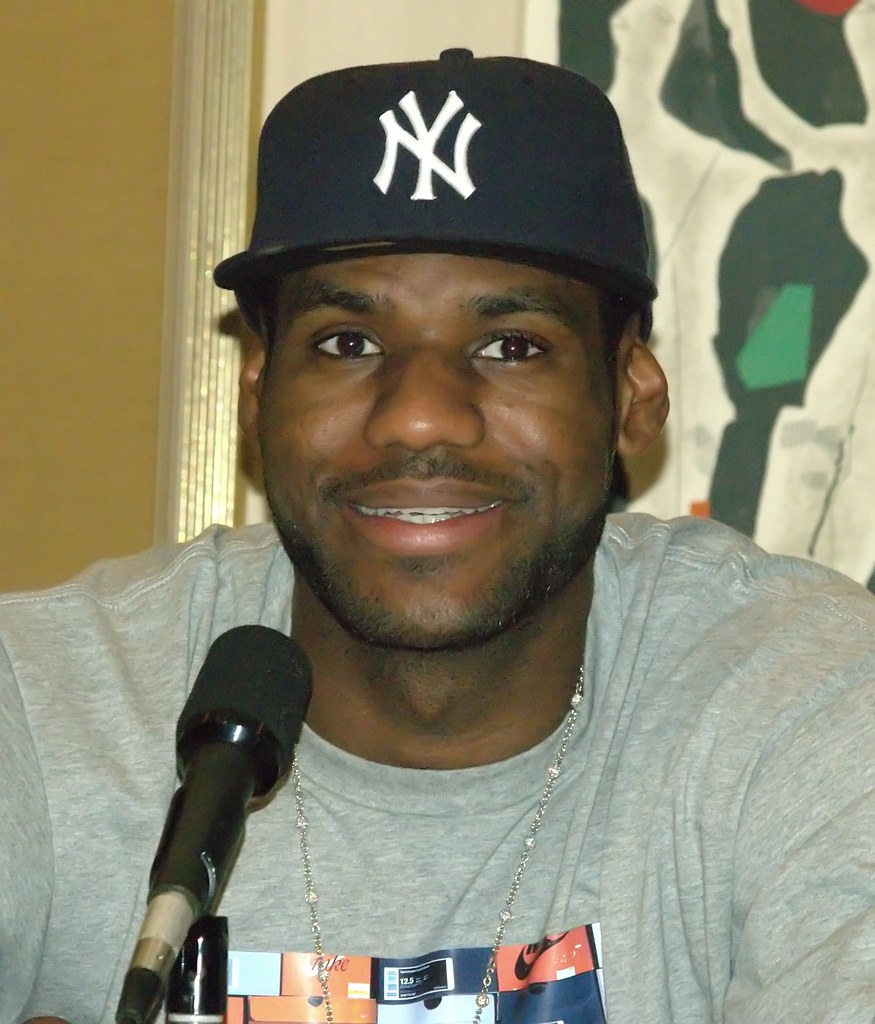
2. **Ascension to Stardom: The Early Cleveland Years (2004-2008)**The seasons following his rookie year saw James rapidly ascend from promising talent to bona fide superstar. In the 2004–2005 season, he earned his first NBA All-Star Game selection, contributing 13 points, 8 rebounds, and 6 assists to an Eastern Conference victory. His rapid development caught the attention of the entire league, with Denver Nuggets coach George Karl remarking to Sports Illustrated, “It’s weird talking about a 20-year-old kid being a great player, but he is a great player … He’s the exception to almost every rule.”
James continued to shatter franchise records, notably scoring 56 points against the Toronto Raptors on March 20, setting Cleveland’s new single-game points record. His consistent high-level play earned him his first All-NBA Team selection by the season’s end. Despite a strong start, the Cavaliers once again narrowly missed the playoffs, finishing 42–40, underscoring the challenge of building a championship contender around a singular talent.
The 2006 offseason brought financial commitment as James signed a three-year, $60 million extension with a fourth-year player option, strategically aligning his potential free agency in 2010 with peers Dwyane Wade and Chris Bosh. On the court, he led the East to victory at the 2006 All-Star Game with 29 points, earning his first NBA All-Star Game Most Valuable Player award. He also finished second in overall NBA MVP voting to Steve Nash, solidifying his status as one of the league’s elite.
Under James’ leadership, the Cavaliers made the playoffs for the first time since 1998, with James recording a triple-double in his postseason debut against the Washington Wizards. He delivered crucial game-winning shots in Games 3 and 5 of that series, guiding Cleveland past the Wizards before their eventual elimination by the Detroit Pistons in the second round. These early playoff experiences, while ending in defeat, were vital in shaping his competitive resolve.
The 2006–2007 season saw the Cavaliers achieve 50 wins for the second consecutive year, securing the #2-seed in the Eastern Conference. James’ most iconic performance during this period came in Game 5 of the Eastern Conference Finals against the Detroit Pistons, where he logged 48 points, nine rebounds, and seven assists. His masterful display, scoring 29 of Cleveland’s last 30 points, including 25 straight, and the game-winning layup in a double-overtime victory, was lauded by commentators Marv Albert and Steve Kerr as “one of the greatest moments in postseason history” and “[Michael] Jordan-esque.”
This transcendent performance propelled the Cavaliers to their first-ever Eastern Conference championship, despite facing a formidable San Antonio Spurs team in the Finals. Against a Gregg Popovich-coached squad featuring Tim Duncan, Tony Parker, Manu Ginóbili, and Bruce Bowen, James struggled with the Spurs’ zone defense due to his developing jump shot and a lack of significant offensive threats on his team. He averaged 22 points, 7.0 rebounds, and 6.8 assists per game on just 35.6 percent shooting as Cleveland was swept in four games, a stark reminder of the challenges ahead.
In the 2007–2008 season, James made a rare appearance off the bench, a decision made to support teammate Anderson Varejão amidst a pay dispute. He would not start a game from the bench again for 15 years, highlighting his unique leadership style. He secured his second All-Star Game MVP award in February and surpassed Brad Daugherty as the Cavaliers’ all-time leading scorer in significantly fewer games. James also claimed his first scoring title, averaging 30 points per game, yet Cleveland’s record dipped to 45–37.
The Cavaliers advanced past the Wizards in the first round of the playoffs for the third consecutive season, only to be eliminated in a hard-fought seven-game series by the eventual-champion Boston Celtics. Game 7 was a classic shootout, with James scoring 45 points against Paul Pierce’s 41, demonstrating his readiness to duel with the league’s best in high-stakes environments.
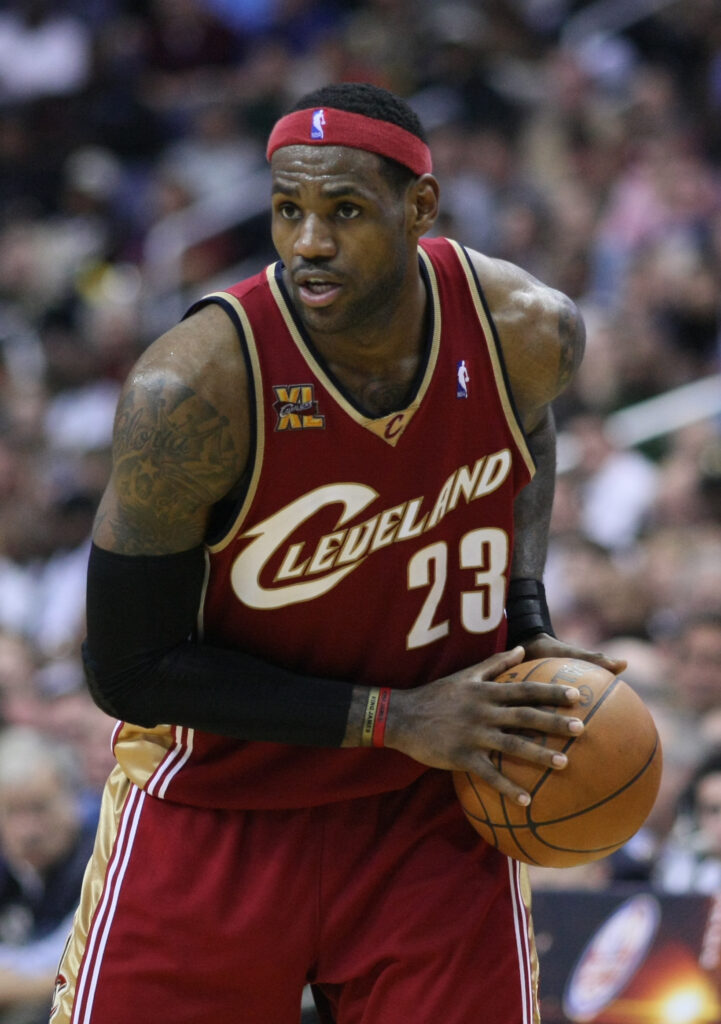
3. **MVP Dominance: Peak Performance in Cleveland (2008-2010)**The period between 2008 and 2010 represented a peak of individual statistical dominance for LeBron James in his first stint with the Cavaliers. In the 2008–2009 season, he not only posted career-highs in blocks with 93 total, including 23 chase-down blocks, but also finished second in NBA Defensive Player of the Year Award voting, earning his first NBA All-Defensive Team selection. This showcased his commitment to being a two-way force, a hallmark of his elite play.
Remarkably, James became only the fourth post-merger player to lead his team in points, rebounds, assists, steals, and blocks in a single season, an extraordinary display of all-around contribution. Bolstered by his exceptional play and the acquisition of All-Star guard Mo Williams, Cleveland achieved a franchise-record 66–16 record, nearly matching the best home record in league history. This collective success culminated in James becoming the first Cavalier to win the MVP Award, with ESPN’s John Hollinger describing his performance as “arguably the greatest individual season in history.”
In the playoffs, Cleveland swept both the Detroit Pistons and the Atlanta Hawks, setting up an Eastern Conference Finals clash with the Orlando Magic. Despite James scoring 49 points on 66 percent shooting in a Game 1 loss and hitting a game-winner in Game 2 to tie the series, the Cavaliers ultimately lost in six games. Following the Game 6 defeat, James’ controversial decision to leave the floor without shaking hands with opponents drew criticism from media members, highlighting the intense scrutiny surrounding his every action.
For the series, James averaged an impressive 38.5 points, 8.3 rebounds, and 8.0 assists per game, finishing the postseason with a career playoff-high 35.3 points per game. His individual brilliance was undeniable, yet the team’s inability to reach the Finals underscored the immense pressure on him to carry the franchise.
The 2009–10 season saw James temporarily embrace a point guard role due to injuries in the Cavaliers’ backcourt. Under his exceptional leadership, Cleveland maintained its momentum, finishing the year with the best record in the league for the second consecutive season. Despite playing only 39 minutes per game, James increased his statistical production, securing his second consecutive NBA MVP Award, further solidifying his status as the league’s preeminent player.
Cleveland advanced past the Chicago Bulls in the first round of the playoffs, but faced the Boston Celtics in the second. James endured heavy criticism for his performance in Game 5, shooting only 20 percent on 14 shots and scoring 15 points, contributing to the team’s worst loss in franchise history. The Cavaliers were eliminated in Game 6, despite James posting 27 points, 19 rebounds, and 10 assists in a losing effort, marking a disappointing end to his first tenure in Cleveland.
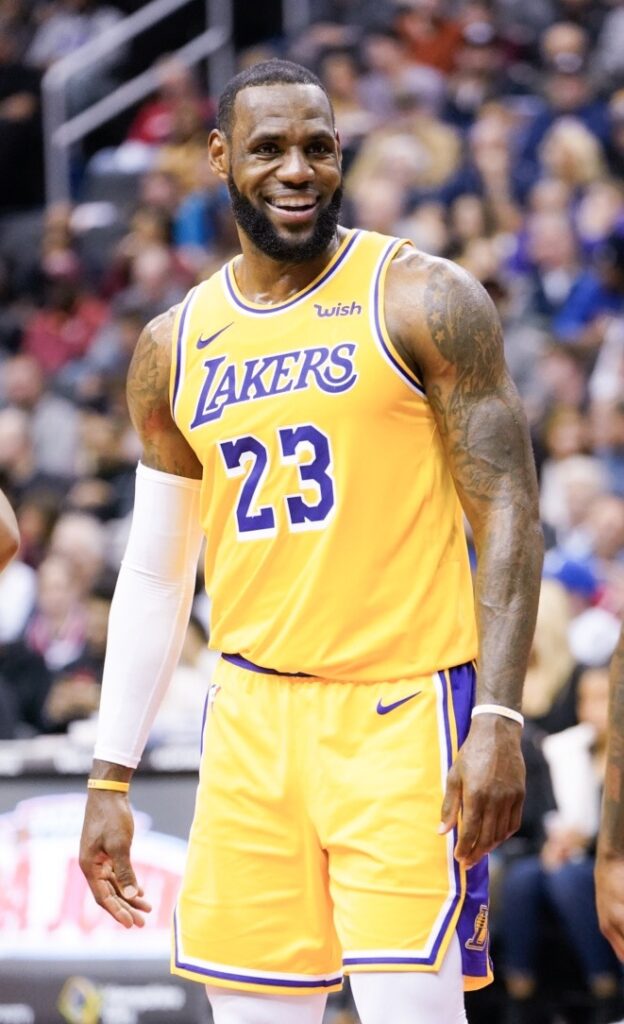
4. **The Decision: A Paradigm Shift to Miami (2010)**On July 1, 2010, LeBron James became an unrestricted free agent, initiating one of the most significant and controversial periods in NBA history. He was courted by numerous teams, including the Bulls, Los Angeles Clippers, Miami Heat, New York Knicks, New Jersey Nets, and his former team, the Cavaliers. The anticipation reached a fever pitch, culminating in a live ESPN special titled ‘The Decision’ on July 8.
During the telecast, broadcast from the Boys & Girls Club of Greenwich, Connecticut, James announced his intention to sign with the Miami Heat. The event itself raised $2.5 million for the charity, with an additional $3.5 million from advertising revenue donated to other charities. This highly publicized announcement followed the declarations of fellow free agents Chris Bosh and Dwyane Wade, who had also chosen to sign with Miami, confirming reports that the trio had discussed their upcoming free agencies as early as 2006.
James’ decision to join Bosh and Wade was driven by a desire to shoulder less of the offensive load, believing that improved teammates would provide a better chance of winning an NBA championship than remaining in Cleveland. Heat president Pat Riley played a crucial role in recruiting James, selling him on the vision of playing alongside Bosh and Wade. James envisioned being relieved of the scoring burden, believing he could become the first player since Oscar Robertson to average a triple-double in a season.
Upon his departure from the Cavaliers, James faced intense backlash from sports analysts, executives, fans, and both current and former players. ‘The Decision’ telecast itself was heavily scrutinized, widely viewed as unnecessary and unprofessional due to the prolonged suspense and the fact that even the courting teams were unaware of his choice until moments before the show. Cavaliers owner Dan Gilbert publicly denounced James’ actions in an open letter to fans, leading to angry fans recording videos of themselves burning his jersey.
Former NBA greats like Michael Jordan and Magic Johnson criticized James for forming a “superteam” in Miami rather than attempting to win a championship in Cleveland, though Jordan acknowledged the expanded options available to players at the time. However, some commentators defended James, citing the Cavaliers’ inability to build a strong supporting cast around him, drawing parallels to other NBA legends who benefited from talented teammates such as Kareem Abdul-Jabbar and James Worthy for Magic Johnson, Kevin McHale and Robert Parish for Larry Bird, and Scottie Pippen for Michael Jordan.
James further fueled controversy in a September CNN interview, suggesting that race might have been a factor in the fallout from ‘The Decision.’ This period led to a dramatic shift in his public image, transforming him into one of America’s most disliked athletes, a stark contrast to his previous popularity. The phrase “taking my talents to South Beach” became a widely used punch line for critics. In retrospect, James has expressed some regret over his handling of ‘The Decision,’ acknowledging the significant public relations misstep.
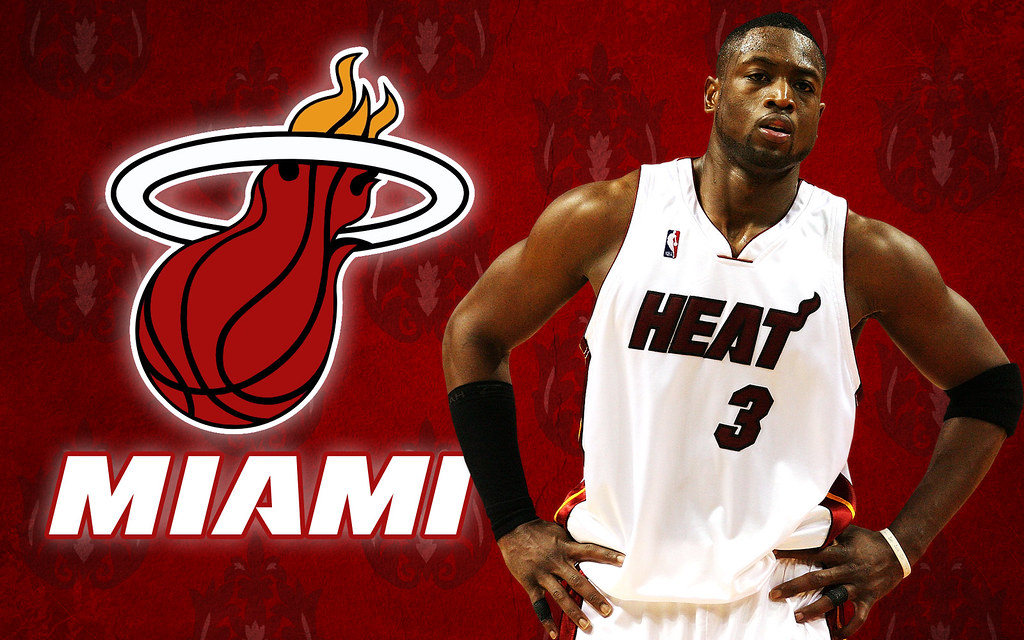
5. **Navigating Scrutiny: The Initial Miami Heat Season (2010-2011)**LeBron James officially signed a 6-year, $110 million contract with the Miami Heat on July 10, 2010, via a sign-and-trade deal that sent draft picks and swap options to the Cavaliers. This move marked the formation of the NBA’s first player-created “superteam” and made James only the third reigning MVP to change teams since Moses Malone in 1982. He adopted jersey number 6, as number 23 had been retired in Miami for Michael Jordan, a decision he had previously stated was due to his belief that Jordan’s number should be retired league-wide.
The Heat’s welcome party for their new “Big Three” at the American Airlines Arena, likened to a rock concert, saw James famously predict a dynasty and allude to multiple championships. Outside of Miami, this spectacle further solidified the negative public perception of James, fueling widespread media and fan scrutiny throughout the 2010–11 season, as the Heat were cast as league villains.
The team initially struggled to adjust to these new circumstances and the intense negativity, opening the season with a modest 9–8 record after 17 games. James later admitted that the constant criticism led him to play with an angrier demeanor than in previous years. His return to Cleveland on December 2 was met with incessant booing every time he touched the ball, yet he scored 38 points, leading Miami to a victory.
Despite the early struggles, the Heat eventually turned their season around, finishing as the Eastern Conference’s second seed. In the Eastern Conference Semifinals, they faced the Boston Celtics, a familiar playoff rival. In a pivotal Game 5, James scored Miami’s final 10 points to secure a series-clinching win, after which he famously knelt on the court in an emotional moment, describing it as an extremely personal victory.
The Heat advanced to the NBA Finals but ultimately lost to the Dallas Mavericks in six games. James bore the brunt of the criticism for the loss, particularly for his struggles in the fourth quarter, where he averaged only three points in the series and scored just eight points in Game 4, a game Miami lost by only three. His Finals scoring average of 17.8 points per game represented an 8.9-point drop from his regular season average, the largest point drop-off in league history, signaling a need for significant personal and team adjustment.

6. **Championship Breakthrough: Back-to-Back Miami Titles (2011-2013)**The 2011–2012 NBA season, shortened by a lockout, proved to be a transformative period for LeBron James. During the extended offseason, humbled by the previous Finals loss to the Mavericks, James proactively sought to improve his post-up game by working with NBA legend Hakeem Olajuwon. This commitment to refining his skillset was coupled with a conscious decision to shed the “villain” persona he had embraced, allowing him to regain a sense of joy and freedom on the court.
With an expanded skillset and a renewed mindset, Miami began the season with a franchise-best 18–6 record. James’ exceptional performance throughout the year led to him being named MVP for the third time in his career, an acknowledgment of his continued dominance and evolution as a player. His leadership and enhanced all-around game were instrumental in the Heat’s success.
In the second round of the playoffs, the Heat faced a significant challenge when Chris Bosh suffered an abdominal injury, leaving them trailing the Indiana Pacers 2–1. James responded with a heroic 40-point, 18-rebound, and nine-assist outing in Game 4, evening the series. To compensate for Bosh’s absence, the Heat adopted a small-ball lineup with James at power forward, a strategic adjustment they retained even after Bosh’s return for the Eastern Conference Finals against the Boston Celtics.
Facing elimination in Game 6 against Boston, James delivered a “career-defining performance,” as described by The New York Times, recording 45 points and 15 rebounds to lead the Heat to victory. Miami then won Game 7 to advance to the Finals, setting up a matchup with the Oklahoma City Thunder and James’ budding rival Kevin Durant. In Game 4 of the Finals, James hit a crucial three-pointer late in the game to secure a lead, helping the Heat win despite suffering leg cramps.
In Game 5, James registered a triple-double as Miami defeated Oklahoma City, securing their second-ever championship and, crucially, James’ first NBA title. He was unanimously voted the Bill Russell NBA Finals Most Valuable Player, averaging 28.6 points, 10.2 rebounds, and 7.4 assists per game. ESPN later ranked his full postseason run, with averages of 30.3 points, 9.7 rebounds, and 5.6 assists per game, as the second-best in modern NBA history, truly cementing his breakthrough.
The 2012–13 season saw James continue his unparalleled efficiency, averaging 29.7 points and 7.8 assists per game while setting multiple shooting efficiency records in February. That same month, the Heat embarked on a remarkable 27-game winning streak, the third longest in NBA history, with Sports Illustrated describing James’ performance during this period as a “month for the ages.”
Miami ultimately finished the year with a franchise and league-best 66–16 record, and James was named MVP for the fourth time, falling just one vote shy of becoming the first player in NBA history to win the award unanimously. This period represented a sustained level of excellence almost without precedent.
In Game 1 of the Eastern Conference Finals, James secured a buzzer-beating layup to give Miami a one-point victory against the Pacers. Throughout the series, his supporting cast struggled, leading James to compare his increased scoring responsibilities to his “Cleveland days.” Despite these challenges, the Heat advanced to the Finals for a rematch with the San Antonio Spurs, six years after his initial Finals appearance against them.
At the beginning of the series, James faced criticism for his perceived lack of aggressiveness and poor shot selection as Miami fell behind 2–3. However, in Game 6, he recorded his second triple-double of the series, including 16 fourth-quarter points, leading the Heat to a dramatic comeback victory. In Game 7, James tied the Finals record for most points scored in a Game 7 victory, leading Miami to another championship over San Antonio with 37 points. He was named Finals MVP for the second consecutive season, averaging 25.3 points, 10.9 rebounds, 7.0 assists, and 2.3 steals per game for the championship round, solidifying the Heat’s place as a dynasty and his own status as the league’s dominant force.
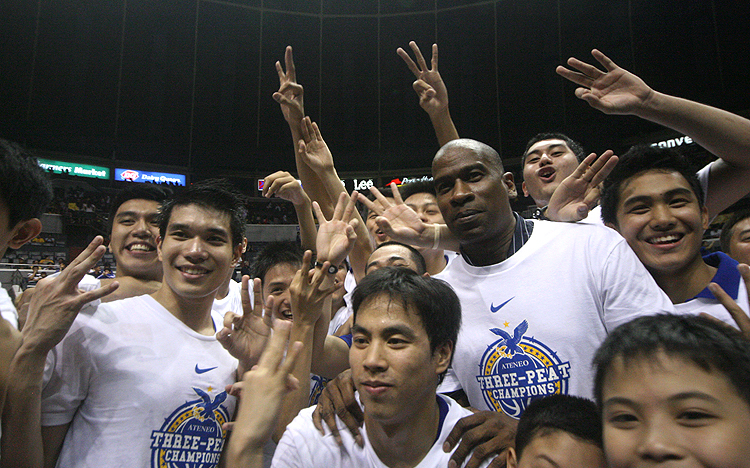
7. **Miami’s Final Act: The Pursuit of a Three-Peat (2013-2014)**The 2013–14 season marked LeBron James’ final year with the Miami Heat, as the team embarked on a quest for a historic three-peat. On March 3, James delivered a career-high and franchise-record 61 points against the Charlotte Bobcats. This explosive performance included converting his first eight three-point field goal attempts through three quarters, setting a new record for the most three-pointers made in a 60-point game, and also establishing the record for most points in a single game while wearing a mask.
Throughout the year, James remained one of the few constants for a Heat roster that utilized 20 different starting lineups due to a myriad of injuries. His individual durability and consistent elite play were crucial in navigating the team through a challenging regular season. The ability to maintain such high-level performance amidst team instability underscored his immense value and leadership.
In the second round of the playoffs, James tied a career postseason-high by scoring 49 points in Game 4 against the Brooklyn Nets, showcasing his ability to elevate his game in critical moments. The Heat then defeated the Pacers in the next round, earning their fourth consecutive Finals berth, a remarkable achievement that placed them among only four teams in NBA history to do so.
The NBA Finals presented a rematch with the San Antonio Spurs. In Game 1, James was forced to miss most of the fourth quarter due to leg cramps, a significant setback that contributed to the Spurs taking an early series lead. Despite this, he led the Heat to a series-tying victory in Game 2 with 35 points on an impressive 64 percent shooting rate, demonstrating his resilience and determination.
However, the Spurs ultimately eliminated the Heat in five games, effectively ending Miami’s pursuit of a third consecutive championship. For the Finals series, James averaged 28.2 points, 7.8 rebounds, and 2.0 steals per game, a testament to his individual output even in defeat. This marked the conclusion of his hugely successful but often scrutinized tenure in South Beach, setting the stage for his next pivotal career move.
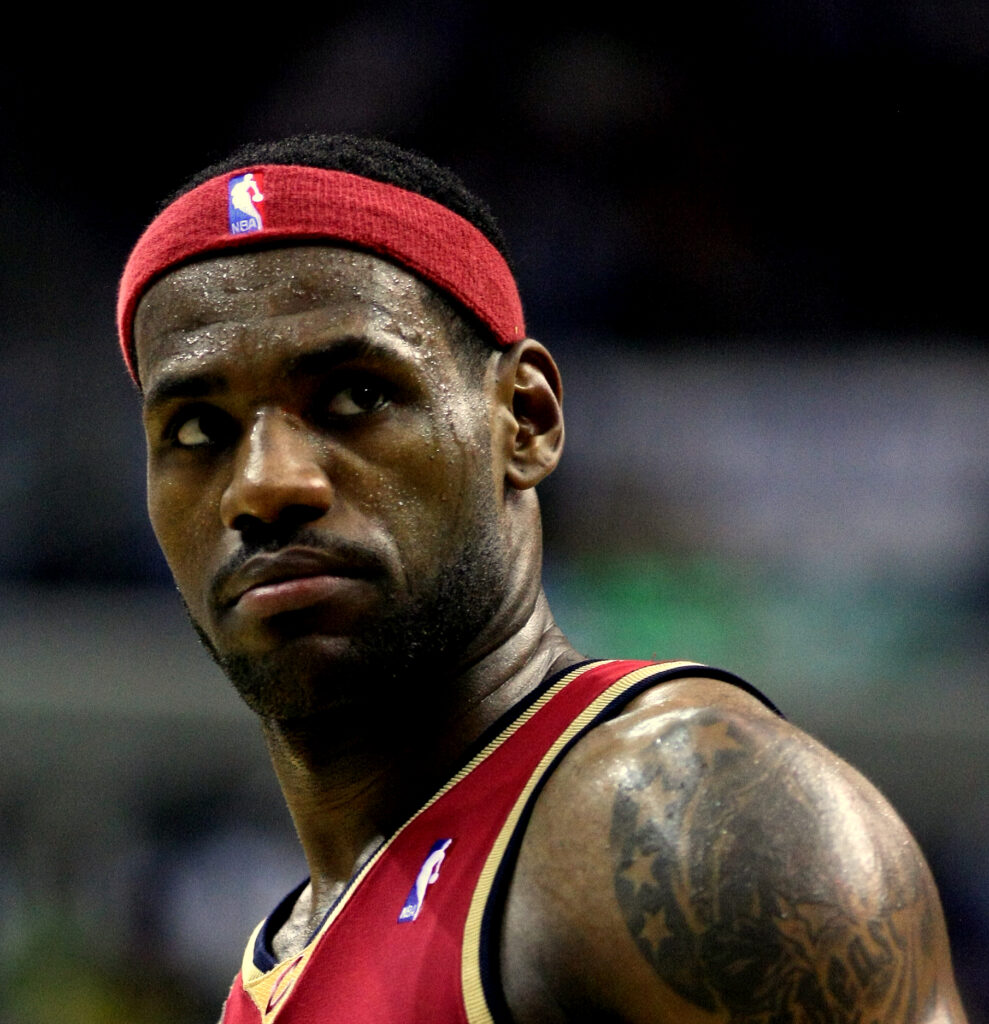
8. **Return to Cleveland: The Prodigal Son’s Homecoming (2014)**In a move that reverberated throughout the professional sports landscape, LeBron James opted out of his contract with the Miami Heat on June 25, 2014, becoming an unrestricted free agent. This decision, unlike its highly scrutinized predecessor, was met with widespread acclaim when, on July 11, James announced his intention to return to the Cleveland Cavaliers via a first-person essay in Sports Illustrated. The stark contrast in public reception underscored a profound shift in narrative, transforming a previous villain into a celebrated hero. His announcement to return to his hometown team was universally well received, repairing much of the public image damage incurred four years prior.
His official signing with the Cavaliers on July 12, on a two-year, $42.1 million contract, symbolized more than just a player changing teams; it represented a strategic re-commitment to a franchise that had endured considerable hardship. In the four seasons following his initial departure, the Cavaliers had compiled a league-worst 97–215 record, a clear testament to the void his absence had created. James’ return was not merely about individual performance but about fulfilling a promise to his home region.
To amplify the team’s potential for immediate contention, the Cavaliers executed a pivotal trade a month after James’ signing, acquiring Kevin Love from the Minnesota Timberwolves. This maneuver formed a formidable new ‘Big Three’ alongside James and the talented point guard Kyrie Irving, setting the stage for a legitimate championship challenge. Symbolically, James also switched back to his iconic No. 23 jersey upon his emotional return to Cleveland, further cementing the sense of a grand reunion and a renewed pursuit of glory for his beloved city.
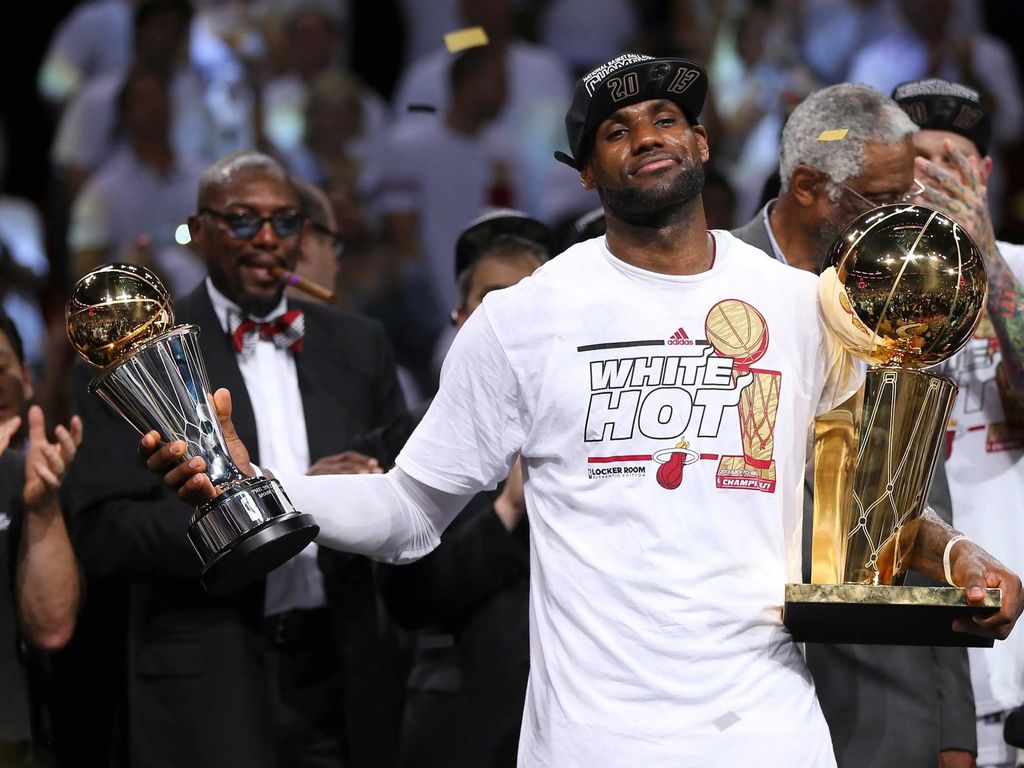
9. **Ending Cleveland’s Championship Drought (2014-2016)**The 2014–2015 season presented its own set of challenges, even with the newly formed superteam. In January, James experienced the longest stretch of missed games in his career, sidelined for two weeks due to left knee and lower back strains. Despite these early setbacks, his leadership proved instrumental, highlighted by a dramatic baseline jumper at the buzzer against the Chicago Bulls in the second round of the playoffs, which tied the series 2–2. The Cavaliers then defeated the Atlanta Hawks in the Eastern Conference Finals, marking James’ unprecedented fifth consecutive Finals appearance, a feat not achieved by any player since the 1960s.
The NBA Finals against the Golden State Warriors saw Cleveland facing significant adversity as both Kyrie Irving and Kevin Love were sidelined due to injury for the majority of the series. This circumstance thrust an even greater offensive burden onto James, who, despite his heroic efforts, could not overcome the depth and talent of the Warriors. The Cavaliers ultimately lost in six games, but James’ individual performance—averaging an astounding 35.8 points, 13.3 rebounds, and 8.8 assists per game—earned him serious consideration for the Finals MVP Award, a testament to his unparalleled impact even in defeat.
Heading into the 2015 offseason, James strategically declined his player option, subsequently re-signing on a two-year, $46.9 million contract that again included a second-year player option. The 2015–16 season, however, was not without its controversies, as James faced public criticism for his perceived role in the midseason firing of Cavaliers coach David Blatt. Yet, amidst these distractions, Cleveland maintained its focus, finishing the year with an impressive 57 wins and securing the best record in the Eastern Conference, setting the stage for another deep playoff run.
The playoffs saw the Cavaliers advance comfortably to the NBA Finals, dropping only two games en route to a highly anticipated rematch with the Golden State Warriors, who were coming off a historic 73-win season. Facing a daunting 3–1 series deficit, including two blowout losses, James engineered one of the most remarkable comebacks in sports history. He delivered back-to-back 41-point performances in Games 5 and 6, single-handedly willing Cleveland to two consecutive victories to stave off elimination. In a decisive Game 7, James posted a triple-double and made a series of pivotal plays, most notably his iconic chasedown block on Andre Iguodala’s go-ahead layup attempt, securing the city’s first professional sports title in 52 years and making the Cavaliers the first team in NBA history to overcome a 3–1 Finals deficit. James’ statistical dominance—leading both teams in all five major statistical categories—culminated in a unanimous Finals MVP selection, a truly unprecedented achievement that cemented his legacy as a champion who delivered on his promise.
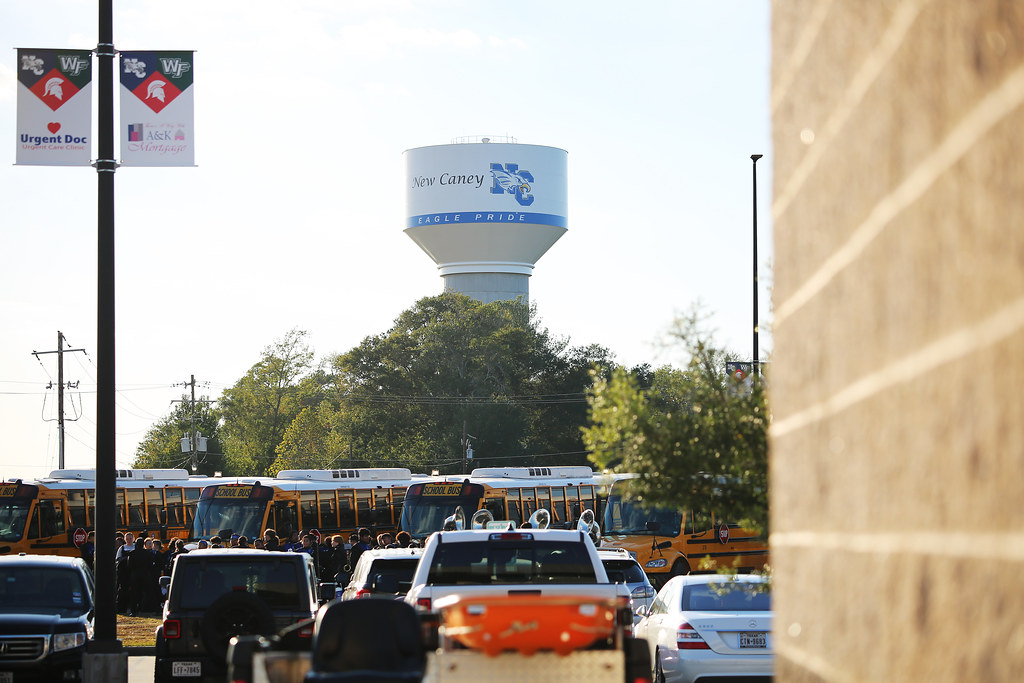
10. **End of Second Stint in Cleveland (2016-2018)**Following the euphoria of the championship, James once again opted out of his contract, but this time re-signed with the Cavaliers on a three-year, $100 million deal, with the final year being a player option. The 2016–17 season proved to be a tumultuous period for the defending champions, marred by a rash of injuries and unexpected losses that James later described as one of the “strangest” years of his illustrious career. A January defeat to the New Orleans Pelicans prompted James to publicly criticize Cleveland’s front office for what he perceived as a “top-heavy” roster, a comment that, in turn, drew countercriticism from media and fans alike.
Despite the team’s inconsistencies, James continued to defy Father Time, elevating his individual performance to new heights. He finished the season averaging 26.4 points while setting career highs in rebounds (8.6), assists (8.7), and turnovers (4.1) per game. His remarkable resilience and expanded playmaking were instrumental as Cleveland secured the East’s second seed. In Game 3 of the first round of the playoffs, he orchestrated an historic comeback against the Indiana Pacers, recording 41 points, 13 rebounds, and 12 assists, overturning a 25-point halftime deficit—the largest overcome in NBA playoff history.
James continued his postseason heroics in Game 5 of the Eastern Conference Finals against the Boston Celtics, where he scored 35 points, surpassing Michael Jordan as the league’s all-time postseason scoring leader. The Cavaliers triumphed in the game and the series, earning their third consecutive NBA Finals appearance, once again squaring off against the formidable Golden State Warriors, who had significantly bolstered their roster with the addition of Kevin Durant during the off-season. Despite James becoming the first player to average a triple-double in the Finals, with averages of 33.6 points, 12.0 rebounds, and 10.0 assists per game, Cleveland was ultimately defeated in five games by the dominant Warriors.
The 2017–18 season began with a significant roster upheaval as Kyrie Irving requested a trade, reportedly because he no longer wished to play alongside James, and was subsequently moved to the Boston Celtics. After a slow start, Cleveland found its rhythm in December, winning 18 of 19 games, a turnaround ignited by James’ 57-point performance against the Wizards on November 3, tying a franchise record. Despite a January slump and criticism regarding his effort, James won his third All-Star Game MVP award in February. He reached an NBA record of 867 consecutive games scoring in double digits by March 30, finishing the season with averages of 27.5 points, 8.6 rebounds, and 9.2 assists, guiding the Cavaliers to a fourth consecutive Finals rematch against the Golden State Warriors, a series they lost in four games after James injured his hand punching a wall following a Game 1 overtime defeat despite scoring a playoff career-high 51 points.
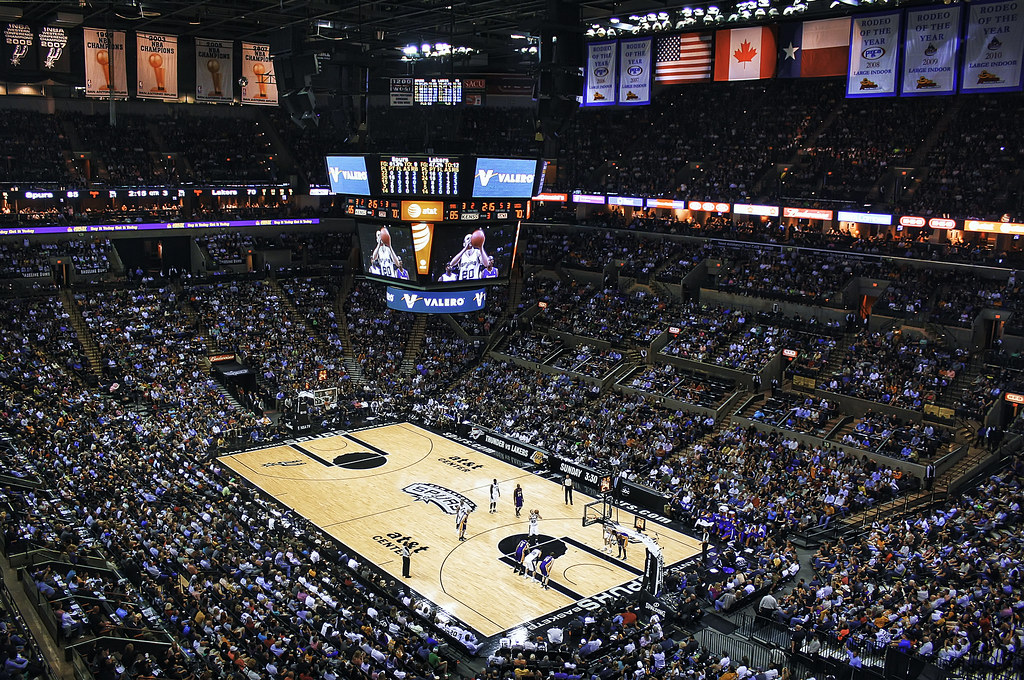
11. **Los Angeles Lakers: Injury and Playoff Miss (2018-2019)**On June 29, 2018, LeBron James once again opted out of his contract, departing the Cavaliers and becoming an unrestricted free agent. Two days later, his management company, Klutch Sports, announced his decision to sign with the Los Angeles Lakers on a four-year, $153.5 million contract, a deal officially completed on July 9. His agent, Rich Paul, articulated the evolving motivation behind James’ career choices, stating, “In 2010, when he went to Miami, it was about championships. In 2014, when he went back to Cleveland, it was about delivering on a promise. In 2018, it was just about doing what he wants to do.” The reaction to this move, while still mixed, was generally more positive than his initial departure from Cleveland, though some observers questioned if Los Angeles was his optimal destination for immediate competitive success.
High expectations immediately converged on the Lakers, who anticipated James’ arrival would instantly transform them into a championship contender, a franchise that had not made the playoffs since 2014 or appeared in the Finals since 2010. Following his signing, the team assembled a roster that some critics described as a “controversial collection of playmakers and veterans.” Early in the 2018–19 season, the team struggled to solidify effective lineups, managing only two wins through their first seven games. However, a significant turnaround commenced in November, propelled by two of James’ most dominant performances of the season: a 44-point, 10-rebound, nine-assist outing against the Portland Trail Blazers, followed four days later by a season-high 51 points against his former team, the Miami Heat.
The Lakers’ promising trajectory, which saw them improve to a 20–14 record after a decisive victory over the Golden State Warriors on Christmas Day, was abruptly derailed when James suffered a groin injury during that game. This marked the first major injury of his career, forcing him to miss a then career-high 17 consecutive games. Without their talisman, the Lakers’ playoff hopes quickly evaporated, making it the first time James had missed the postseason since 2005. In March, the Lakers announced a minutes restriction for James, and he was later officially ruled out for the remainder of the season, a premature end to his inaugural campaign in Los Angeles. Despite the inconsistent and injury-shortened season, James was still recognized with an All-NBA Third Team selection, a rare occurrence as it was the first time in twelve years he did not make the All-NBA First Team.
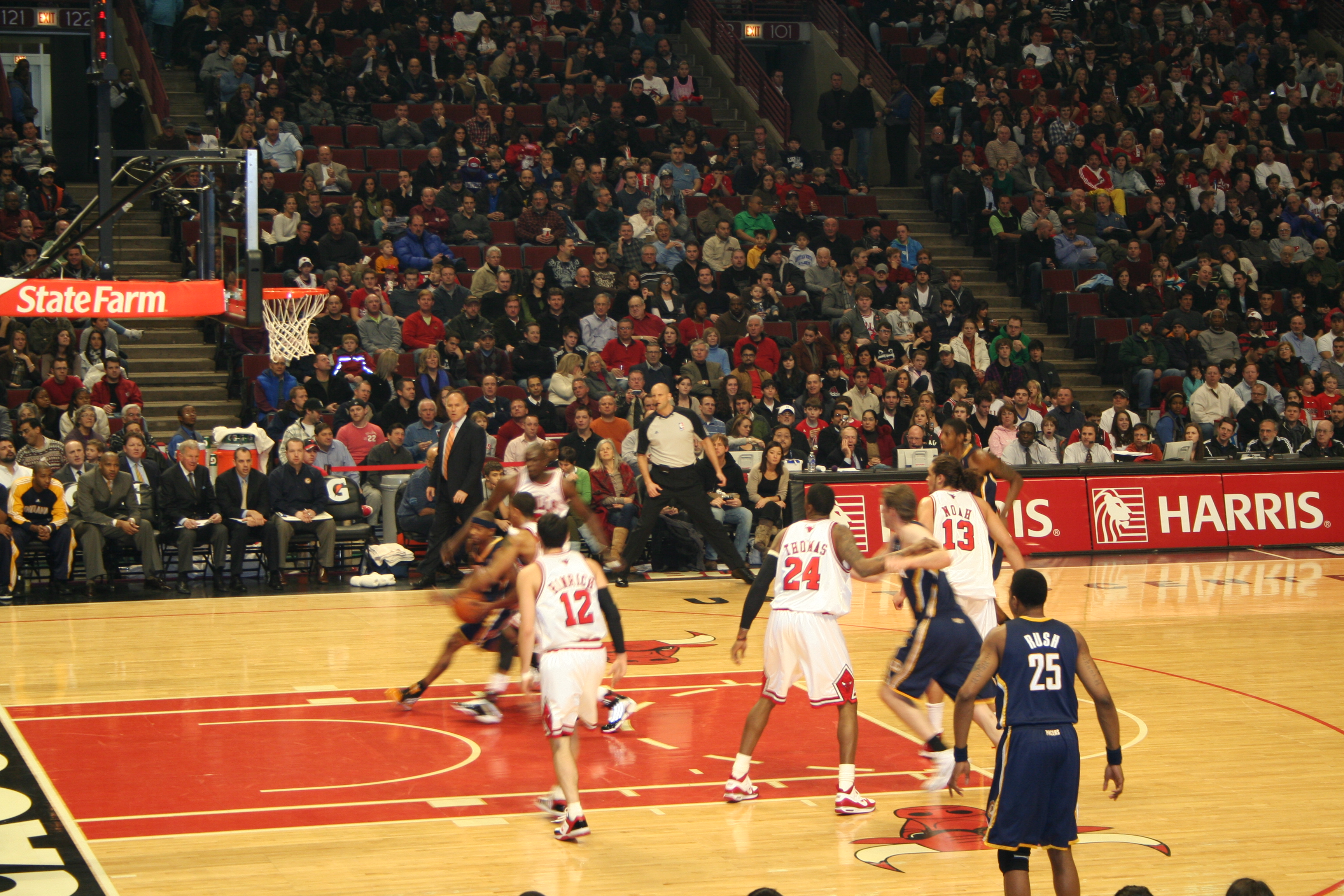
12. **Fourth NBA Championship (2019-2020)**During the 2019 offseason, the Lakers made strategic moves to retool their roster and coaching staff, hiring Frank Vogel as their new head coach. The most impactful transaction involved trading the majority of their young core to the New Orleans Pelicans in exchange for superstar big man Anthony Davis, a move designed to create an immediate championship-contending duo with James. James readily embraced the significantly improved roster, strategically transforming his playing style by moving to a full-time point guard role and committing to a more consistent defensive effort, showcasing his unparalleled adaptability and commitment to team success.
Under James’ revitalized leadership, the Lakers opened the 2019–20 season with an impressive 17–2 record, matching the best start in franchise history. Individually, James continued to etch his name deeper into the record books; on January 25, he scored his 33,644th career point, surpassing his idol, Kobe Bryant, for third place on the all-time regular season scoring list. The profound significance of this achievement was underscored by tragedy the very next day, when Bryant died in a helicopter crash. James, deeply affected, delivered an improvised and moving eulogy in honor of Bryant at Staples Center before a game against the Portland Trail Blazers on January 31, a moment that resonated deeply across the sports world.
Before the season was dramatically suspended due to the COVID-19 pandemic in early March, James led the Lakers to significant victories, including a compelling matchup against the Milwaukee Bucks, then conference leaders, followed by a streak-breaking win over the crosstown rival Los Angeles Clippers. When regular season play resumed within the confined NBA Bubble in July and concluded in August, James finished the year as the league leader in assists for the first time in his career, averaging 10.2 assists per game. This remarkable season also earned him a record 16th All-NBA Team selection, extending his record of First Team selections to 13, further cementing his enduring elite status.
Entering the playoffs as the top seed in the Western Conference, the Lakers advanced to the NBA Finals with convincing authority, suffering only three total losses across three series. In Game 5 of the Western Conference Finals against the Denver Nuggets, James delivered a masterful performance, scoring a game-high 38 points, including 16 in the fourth quarter, to clinch the conference championship. In the Finals, James and his teammates found themselves matched against his former team, the Miami Heat, and quickly established dominance with a 2–0 series lead. Despite a memorable duel with Miami’s Jimmy Butler in Game 5, where James delivered his best statistical performance of the Finals with 40 points, 13 rebounds, and seven assists in a narrow three-point loss, the Lakers ultimately eliminated the Heat in Game 6. This victory secured James his fourth NBA championship and fourth Finals MVP award, making him the second-oldest player in league history to win the award at 35 years and 287 days old, and the only player in NBA history to win the award with three different franchises. Alongside teammate Danny Green, he also became one of only four players in NBA history to win at least one championship with three different teams, showcasing his unparalleled ability to lead diverse rosters to the pinnacle of basketball success.

13. **Back-to-Back Chase and Milestones (2020-2022)**Following the triumph of the 2020 championship, LeBron James solidified his commitment to the Lakers by signing a two-year, $85.7 million extension, ensuring his tenure with the team through the 2022–23 season. The 2020–2021 season, dramatically shortened to 72 games per team and commencing on December 22, 2020, after the shortest offseason in NBA history due to the COVID-19 pandemic, began with a 116–109 loss to the Los Angeles Clippers. Despite the challenging circumstances, James continued to redefine longevity; on December 31, he became the first player in NBA history to score 10 points or more in 1,000 consecutive games during a 121–107 victory over the San Antonio Spurs, a testament to his consistent scoring prowess. Further cementing his place among legends, on February 18, 2021, James reached 35,000 career points, joining Kareem Abdul-Jabbar and Karl Malone as only the third player in NBA history to achieve this milestone, doing so as the youngest player at 36 years and 50 days old.
However, the relentless schedule and accumulating mileage began to take their toll. On March 20, James sprained his ankle against the Atlanta Hawks, though he heroically hit a three-point shot immediately afterward to preserve his remarkable 10-point scoring streak before exiting the game. This injury initiated his longest absence from the court, as he missed 20 games. The Lakers, who had been ranked second in the Western Conference by March, experienced a significant downturn without James and an injured Anthony Davis, falling to the fifth seed. James eventually returned on April 30, eager to rejoin the championship chase.
Despite being sidelined again in May after leaving a game against the Toronto Raptors, James returned for the final two games of the season, maintaining his incredible standard of excellence. He finished the season averaging 25.0 points, marking his 17th consecutive season averaging at least 25 points per game—the most in NBA history, a staggering testament to his enduring high-level play. In an injury-laden season for the team, the Lakers concluded with a 42–30 record, securing the No. 7 seed due to tiebreakers, which set up a daunting play-in tournament matchup against the No. 8-seed Golden State Warriors, led by Stephen Curry.
In a thrilling play-in game, James delivered another iconic performance, securing a 103–100 victory for the Lakers by hitting a go-ahead, three-point shot in the final minute. He posted a triple-double with 22 points, 11 rebounds, and 10 assists, along with two steals and a block. His clutch 34-foot (10 m) shot over Stephen Curry, just before the shot clock buzzer, was not only his longest basket of the season but also his longest go-ahead shot in the closing three minutes of a game in his career, adding another chapter to his legend of clutch moments. This victory propelled the Lakers into the playoffs to face the No. 2 Phoenix Suns, marking the first time in James’ career that he did not possess home-court advantage in the opening series.
The Lakers initially took a 2–1 lead in the series against the Suns, but their fortunes turned when Anthony Davis suffered a strained groin in Game 4. James finished that game with a team-high 25 points on 10-for-21 shooting, 12 rebounds, and 6 assists, but without Davis, the team struggled. The Lakers ultimately lost to the Suns in six games, marking a career first for James—his first loss in the first round of the playoffs. He finished the series averaging 23.3 points, his fourth-lowest scoring output for a series in his career and his lowest mark since the 2014 Eastern Conference Finals. Despite the team’s early playoff exit, James continued to earn individual accolades, securing his 17th consecutive All-NBA Team selection, further extending his record for most selections in NBA history, this time being named to the All-NBA Second Team. For the 2021–22 season, James was joined by Carmelo Anthony and Russell Westbrook, and he switched his jersey back to No. 6; he had intended to do so two years earlier, in order to allow Davis to wear No. 23, but Nike had prevented him from doing so due to having too much merchandise of James with No. 23. The career of LeBron James is a testament to continuous evolution and sustained excellence, a narrative that continues to unfold with each passing season, solidifying his stature as one of the most impactful and influential figures in global sports history, with a brand that transcends the game itself. His journey, marked by strategic decisions, unparalleled achievements, and an unwavering pursuit of greatness, continues to inspire and redefine the parameters of what is possible on and off the court.



